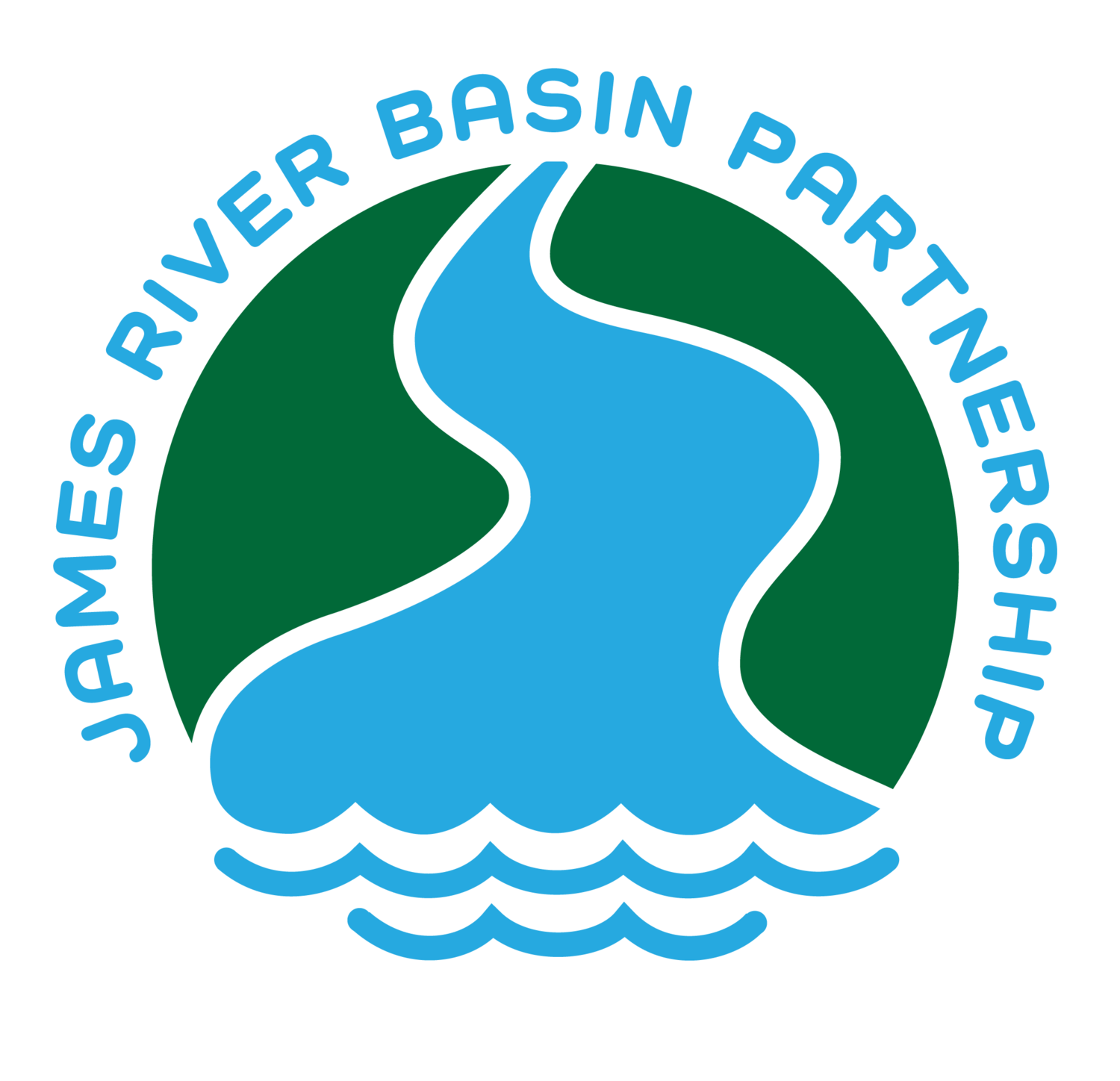As I write this blog, the JRBP staff is recovering from another successful Earth Day cleanup. It was my first river cleanup since I’ve been with JRBP, and even though almost every muscle in my body seemed to ache from loading canoes at the end of the day (and my feet now have “Chaco sunburns”, making me an “official” river rat) it was still one of those “good” pains that remind you that it was from hard work that hopefully made a difference – and I believe we did. 13 tires, a number of pieces of river flotsam & jetsam (including a 1980s era security camera and an empty blue barrel) and many bags of trash were hauled from the James River and Lake Springfield by over 60 volunteers who came together on a Monday afternoon to show their love for our local water. (Visit our Facebook page to see cleanup photos.)
JRBP member Greg Fehrenbach brings in the blue barrel at the Earth Day cleanup on Lake Springfield.
While we don’t necessarily recommend repurposing a barrel that housed potentially harmful substances, that blue barrel found in the James on Earth certainly speaks to the old adage about one person’s trash being another’s treasure when you consider our rain barrel rebate program, a symbol of sorts of our larger community of water advocates and the many ways there are to help protect our Ozarks streams.
We’ve already had a number of inquiries and applications come in this spring from folks in Greene and Christian counties wanting to harvest rainwater AND receive a rebate for their efforts. If you’re not familiar with rainwater harvesting, check out our rain barrel rebate page on this web site.
Just like the folks who helped with Earth Day, when you install a rain barrel at your home, business, school or wherever, you’re helping to protect our local waters. Rain barrels help reduce stormwater runoff. Stormwater runoff collects pollutants like petroleum, fertilizers, pesticides, herbicides, plastics, and more from impervious surfaces like your roof, parking lots, streets and even lawns. They also help minimize erosion by slowing down runoff allowing water to “slow, spread and soak”, filtering out those pollutants previously mentioned. And finally, rain barrels help conserve drinking water by utilizing rain water to water your lawn, landscaping or even washing your car or dog.
And not only do you get the satisfaction knowing you’re helping to protect area streams, rivers and lakes, but with our program, you’ll also receive a one-time rebate. It’s issued as a direct reimbursement to homeowners at a rate of $0.50 per gallon, based upon your new system's capacity. So For example, a 100-gallon system would yield a $50 rebate after installation. To qualify, rainwater harvesting systems must hold a minimum of 50 gallons. The rebate maximum per property is $300 and is only available to residents or business in Greene or Christian County. Rainwater harvesting is not only good for the Earth and our water supply, but also for your bank account!
As I watched all of our dedicated volunteers on Earth Day, I couldn’t help but reflect on how a cause like ours creates a sense of community. Every one of us that was out at Lake Springfield or the James has a connection to our local waters, just as those who make the effort to install a rain barrel to help capture and utilize storm water do as well. No matter how you participate – by getting out and floating, picking up trash, harvesting your rainwater, participating in water quality monitoring, becoming a JRBP member or making a donation – you’re a part of the larger community of water advocates in Southwest Missouri. It makes those sore and stiff muscles hurt just a bit less when you think about all of the good we accomplish together on behalf of the James and other Ozarks waters.
We’ll see you on the river.
Todd




